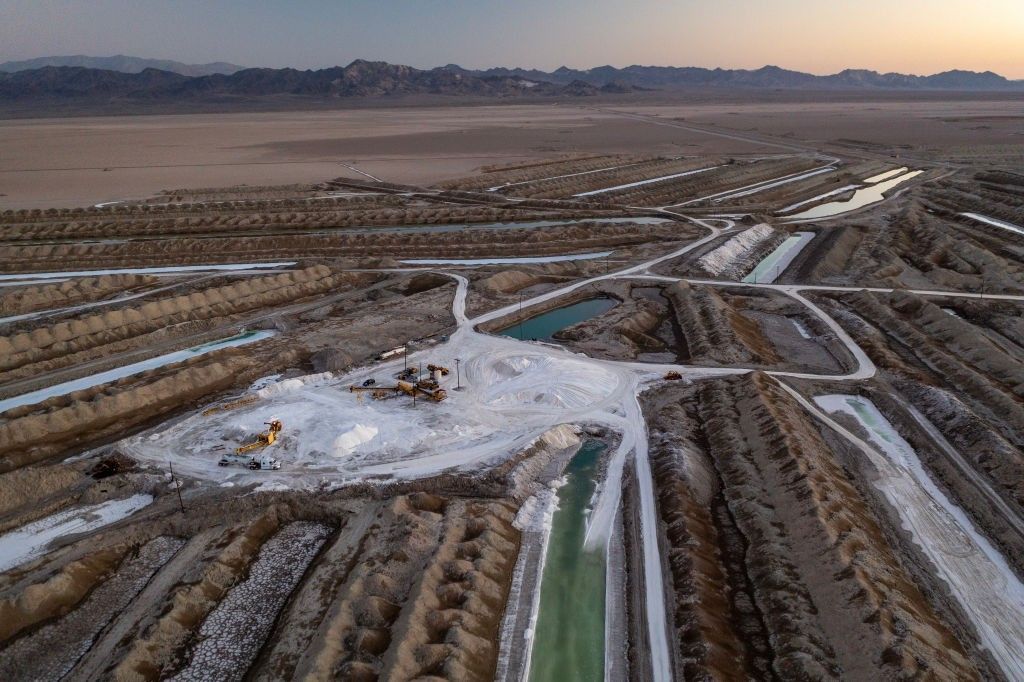Let’s Make a Green Energy Transition Without the Dirty Energy Mistakes

As the world grapples with the climate crisis driven by extracting and burning fossil fuels, clean technologies—wind farms, solar panels, and electric vehicles—are essential tools in fighting back. But these technologies cannot be ramped up at the speed and scale that we need without the extraction of minerals such as copper, nickel, and lithium.
This week, over 2000 leaders in the mining, energy, and government sectors will meet in London to discuss this issue, and how to tackle it. As demand skyrockets for these minerals as we develop clean energy and as the industry innovates new technologies, it is imperative that around the world, government leaders implement strong policies and regulations to avoid the problems perpetuated by the fossil fuel industry.
As more electric cars hit the road and more wind turbines are erected at sea, now is the time to right the decades-old problems of these extractive industries, including mining.
In the race to secure the supply for this urgent transition, we cannot afford to follow in the footsteps of the fossil fuel industry’s status quo where profits were put before communities and our air and water. As more electric cars hit the road and more wind turbines are erected at sea, now is the time to right the decades-old problems of these extractive industries, including mining.
While there have been many innovations in the mining sector, like drying mine tailings for their safe disposal, extracting lithium from geothermal brines, and reusing the industry’s old mining waste to turn into minerals used in electric car batteries, the mining industry has still caused—and continues to cause—harm to the environment and frontline communities. This includes polluting air and water, exploiting workers, and standing in the way of necessary reforms despite the many readily available technologies and practices that ensure good stewardship.
Consumers expect products to be sustainably created—electric vehicles included. As we transition to clean energy and clean transportation, industry must embrace innovation and strong safeguards to increase efficiency in mineral use, reduce the need for mining, and ensure communities and workers up and down the supply chain are protected.
There are a number of solutions being deployed right now to meet the increasing demand for minerals used in electric car batteries without having to rely on more and more mining. New technology—like smaller batteries—and strong circularity policies have the potential to make batteries that are more efficient, and nearly halve the demand for minerals by 2050, reducing the need for more mining. Committing to scale and using these best practices consistently would alleviate much of the environmental harm we’re seeing.
Consumers of electric cars are expecting sustainable practices from mine to vehicle, as well as the prioritization of clean air, safe water, and healthy communities.
With better mineral traceability—which proves minerals’ origin and steps from mining to downstream uses—mining companies and the businesses that buy what they extract will be able to complete sustainability certifications, bringing accountability to the process, ensuring the minerals are mined in a way that is as environmentally and ethically sourced as possible. There are international guidelines to follow, as well—the Initiative for Responsible Mining Assurance has a set of standards to assess mines and help ensure automakers can purchase minerals that they know they can trust to be as sustainable and justly extracted as possible.
Better sourcing, coupled with policies like the EU’s Critical Raw Materials Act and international mining standards are all increasing the efficiency and sustainability of cleantech from batteries to solar panels. These are all just a start. More work must be done to include Indigenous and other frontline communities in the minerals value chain to address human rights issues, governance needs, and local environmental impacts while providing economic opportunities in this transition. Regulations, standards, innovations, and technological improvements must be scaled up and deployed and made a key part of the conversation about electric cars at the local, regional, national, and global levels.
Consumers of electric cars are expecting sustainable practices from mine to vehicle, as well as the prioritization of clean air, safe water, and healthy communities. As global leaders gather in London later this month, they have the opportunity to make the future of electric transportation as sustainable as possible and shape this transition in a way that serves communities on the ground, spurs economic growth, and combats the climate crisis, rather than make the same mistakes as the fossil fuel industry.

